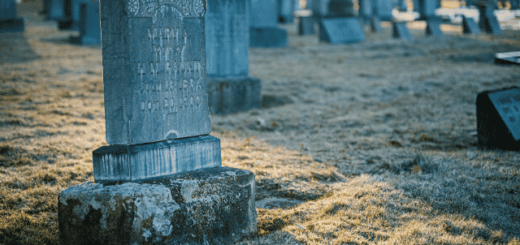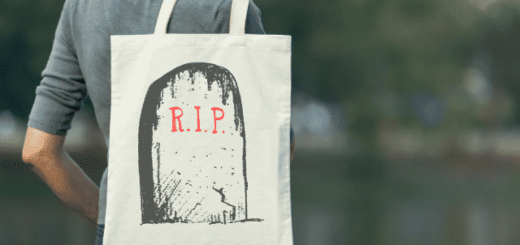Preserve Family Stories: Exploring Remembering a Life

Life and death have taken on new meaning for us since Covid-19 emerged. From its inception, we knew this pandemic would be different; today, close to 1 million Americans have succumbed; 6 million deaths globally have resulted from it.
Although death counts may be staggering, what makes these losses particularly heartbreaking is a lack of closure – no time was given for family and loved ones to say their last farewells in an honorable and respectful manner. With no chance to host or attend funeral services due to limited space and finances, an increase of “disenfranchised grief” has arisen as we dwell on loved one deaths which didn’t receive adequate acknowledgment; rememberingALife.com aims to address this loneliness and confusion caused by such deaths by creating memorial events as memorial tributes.
Remembering A Life recognizes not only that life comes to an end, but that we can celebrate its memory by hosting memorial services or planning their own end-of-life rituals in an increasingly changing approach to grief. Here’s a glimpse into RememberingALife.com and how it is helping families celebrate loved ones through memorial services or planning end-of-life rituals in an evolving approach to grief.
Death during Covid
In 2020, the National Funeral Directors Association (NFDA) identified that our nation needed a way to give voice to grief; recognize its normalcy; and find resources on coping and taking care of ourselves after losing loved ones. Therefore, RememberingALife.com was created as an information resource about everything from sudden deaths to creating meaningful memorial services in memory of deceased family and friends.
“One downside of the pandemic was not being permitted to hold funeral services directly, says Gail Marquardt, Vice President of Consumer Engagement for NFDA. However, people needed an opportunity to say their final farewells in person and discuss just how meaningful each life had been to them all.”
Marquardt points out that our current way of grieving may have some advantages: “Now, we are discussing death more, which may have a silver lining from my perspective: We recognize the value of living life to its fullest and are more aware of its fragility than five years ago; as tragic events make clear.”
Responding to Grief
Grief can come in many forms: shock, disbelief and despair are but some examples. Since the pandemic hit in 2009, we’ve come to recognize grief’s physical manifestation: our bodies suffer and an array of illnesses arise as a result; oftentimes this leads us down a downward spiral that seems out of control.
Dr. Sidney Zisook, professor of Psychiatry at University of California San Diego and one of the foremost researchers on grief, suggests we may experience several sensations upon experiencing death:
Separation distress, trauma distress, guilt, remorse and regrets as well as social withdrawal are among the key obstacles in grieving. Isolation has only compounded our ability to grieve while the absence of traditional funeral ceremonies complicates this journey of our natural grieving process.
Marquardt shares this sentiment. “Losing someone has been heartbreaking; being home alone without access to friends or family has been extremely distressful for people attempting to move on from this loss.”
Remembering a Life offers an abundance of grief support resources, such as how to take time for ourselves after experiencing loss, as well as ways to carry their legacy forward. Additionally, they provide advice on meeting both physical and emotional needs while mourning a loss.
Honoring Life
Commemorating someone’s life is always important and needn’t be done out of sadness – memorial and life services don’t need to be solemn events; instead they can be reflective, hopeful, or even joyful events that pay tribute. Honoring lives can take place any time; its primary goal should be gathering people together for memories; this can be powerfully healing as people share stories about lost loved ones while remembering old tales together. Research suggests that speaking out about grief helps people deal with it more productively than keeping silent or suppressing it inside.
Marquardt recalls when one of her closest friends lost someone dear. Since Marquardt had experienced loss herself, he asked for advice in grieving; her advice? To never stop talking about them and share stories as these memories serve as beautiful tributes for someone special in your life.
Are You Remembering a Life? Remembering a Life provides clear and compassionate guides on how to honor those we’ve loved with dignity, joy and love while celebrating their unique existence as they were.
Modern Funerals
Funeral homes started offering streaming services during the height of the pandemic. Since then, virtual funerals have become an accepted practice; we can attend live-streamed services from home while still sharing in mourning together with loved ones scattered across the country. Furthermore, virtual funerals reduce long-distance travel expenses while still allowing everyone involved to participate.
Remember a Life has prepared an extensive guide on planning funerals during the COVID-19 pandemic to address its prevalence. There is even advice if forced to postpone or forego planning an actual burial service altogether.
But Marquardt believes we will see an upswing in in-person funerals. “I don’t think the traditional service with viewing and casket is going away,” she states, noting “there is immense value in viewing someone we love, offering closure that we now realize more readily through people talking more when in person and sharing more about their loss with those close to them. We recognize the benefits of sharing this way.”
Due to our changing attitudes toward death and mourning, many funeral directors are creating educational campaigns about services and burial options for people to learn more. Some host community events that cover such topics as writing eulogies, understanding natural versus green burial options, as well as how to incorporate specific smells (such as Dad’s aftershave) into receptions.
Similar to funeral home tours, some funeral homes host “Lunch and Learn” sessions to offer individuals the chance to visit, have lunch at, and begin discussing how you wish to be remembered before it becomes necessary. By discussing it early on, remembering a Life offers its “Have the Talk of a Lifetime” checklist and workbook to assist participants with discussing end-of-life planning.
If the thought of death and mourning makes you uneasy, there are other ways you can acknowledge their weight. Life Book Clubs allow participants to read books that address loss and grief before discussing which ones resonated most (or didn’t). If there’s none nearby, consider starting your own; Remembering A Life has some helpful guidelines on starting one yourself.
Remembering a Life provides thoughtful end-of-life discussions on the second Wednesday of every month with experts from different fields; its most popular podcast dealt with funeral directors discussing their experiences following September 11, 2001 attacks.
“Funeral directors tend to keep themselves in the background,” Marquardt noted, noting their lack of publicity about what they do or why. Yet they were very generous, with four stories that resonated with listeners about 9/11 resurfacing from these funeral directors whose services they offered. Hearing this podcast may bring back memories or bring us right back there.”
Preplanning Your Way
According to estimates, an estimated 65 million Baby Boomers are planning their parents’ funerals. While traditional services might be preferred by Mom and Dad, some Boomers are exploring alternatives that celebrate life rather than mourn it.
Preplanning offers you more control than waiting. When considering interment options for yourself or a loved one, preplanning offers choices including cremation, resomation (natural water cremation), natural burial or green burial options as well as cremation or promession (freeze-drying to reduce body to powder), reef balls or space burial. Donating your body could also be considered. In three states human composting has even become legalized!
Some Boomers are taking steps to plan ahead for funeral expenses by creating funeral budgets for themselves and their loved ones. You can do this by setting up prepayment plans with funeral homes, purchasing burial insurance policies or contributing to payable-on-death savings accounts with local banks.
Planning allows you to decide how you want to be remembered. If fishing is something that holds a special place in your heart, why not have the reception area decorated accordingly? Display photos of your big catches around the room, and ask friends and loved ones to share their own “the one that got away” stories while enjoying a delicious fried fish dinner reception?
If you’re an avid Dire Straits (or Stones, or Kenny Rogers) fan, request that music from those artists be played during the visitation or reception. Select an iconic song to represent yourself and have it played as part of a special dance; “Planning in Advance” provides more ideas.



